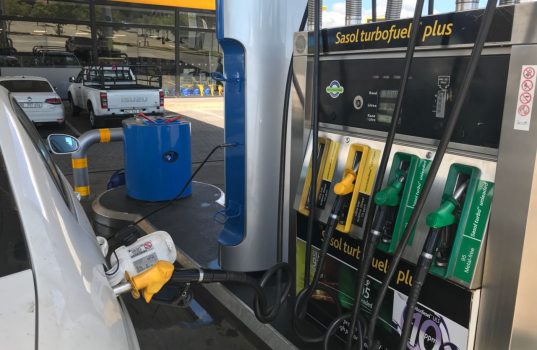A few things to know about petrol versus diesel cars
When it comes to buying a new car (used or brand new), there are a variety of considerations one needs to take before finalising the purchase. The obvious things include brand, model, style and colour of the car. Then there are the other important details such as engine power, transmission type (automatic or manual), size of both the interior and exterior and any extra “luxury” features, including Bluetooth and electric windows, for example. And, along with these other important details comes the choice between petrol or diesel fuel for the car.
There are so many different factors that affect these decisions that we end up making about our cars. Engine power depends on the amount of travelling we do and our preferred driving style. Transmission depends on personal preference and level of driving confidence. Brand and model of the car depend on budget, quality and experience. Size of the car depends on the average daily capacity of goods or passengers in the car. But what are the considerations one needs to take in order to decide on the fuel type? And is it even such an important decision to make?
It’s more in-depth than simply looking at the difference between the two fuel prices at the petrol station. So, if that’s your plan, scratch that and take a look at the following need-to-know details regarding the petrol versus diesel argument.
Let’s take a look at petrol cars first
Petrol cars are more common but that shouldn’t be the reason you choose petrol over diesel. You need to know the advantages and disadvantages that come with both. So, here they are:
• Advantages: Petrol cars, right off the bat, aren’t as expensive as diesel cars when browsing through the new or used car dealerships in Johannesburg or anywhere in South Africa really. They are also more affordable than diesel cars when it comes to servicing. And, if noise is a thing for you, petrol cars are quieter than diesel ones. They also emit less nitrogen into the air, which is not something we need in our breathable atmosphere.
• Disadvantages: So, as with anything, there are some disadvantages. And, in petrol’s case, this includes the fact that the price of petrol is more expensive than diesel and, if that weren’t enough, they aren’t as fuel-efficient as diesel cars. While petrol has lower nitrogen emissions, their carbon dioxide emissions are significantly worse than diesel.
Now let’s talk about diesel
Keeping in mind what was just covered in the petrol section, we’ll be looking at the advantages and disadvantages of diesel cars now:
• Advantages: Diesel cars are more expensive to buy and service but, one could argue that they make up for those costs by being cheaper to fill-up at the garage and more fuel-efficient in terms of consumption (and they emit less carbon dioxide levels as an added bonus). Diesel cars, for this reason, are ideal cars for people who often drive far distances and, for other reasons, for those who enjoy a fair bit of power behind the pedal. Because of these factors, another advantage of diesel cars is that they tend to have a higher resale value than petrol cars.
• Disadvantages: Many of the disadvantages have been mentioned already, but we’ll quickly list them for you to make sure you have all the information you need to make your decision. Diesel cars are expensive to buy, service and maintain. They emit dangerous levels of nitrogen and tend to be noisier than petrol cars. Oh, and the insurance you pay on your diesel car will likely be higher than if you had a petrol car.
Final considerations
Now that you have a lay of the land in terms of which-fuel-type-is-better-where, you can start finalising considerations and make your choice.
What it will mainly come down to at the end of the day is your budget. You’ll need to factor in the price of fuel to fill your tank as often as you do in a month, the difference in price between the petrol or diesel version of the same car, the cost of car insurance, as well as the potential servicing costs in the event something goes wrong. Then it becomes a matter of weighing up how much you’ll save if you buy and drive a petrol car for the next few years or vice-versa with a diesel.
Other considerations that may have an effect on your final decision are the amount of driving you do and your driving style. If you drive for work every day and like having enough power to easily and safely overtake other cars on the road, then diesel may just be the option for you.
What is misfuelling and why should I stay attentive at the fuel pumps?https://t.co/sc9clnaYqL pic.twitter.com/lcw7jbrNw2
— Arrive Alive (@_ArriveAlive) July 20, 2016
Related Posts
« 10th UIC World Congress on High Speed Rail in Ankara What are the benefits of travel on Tolled Roads? »
























